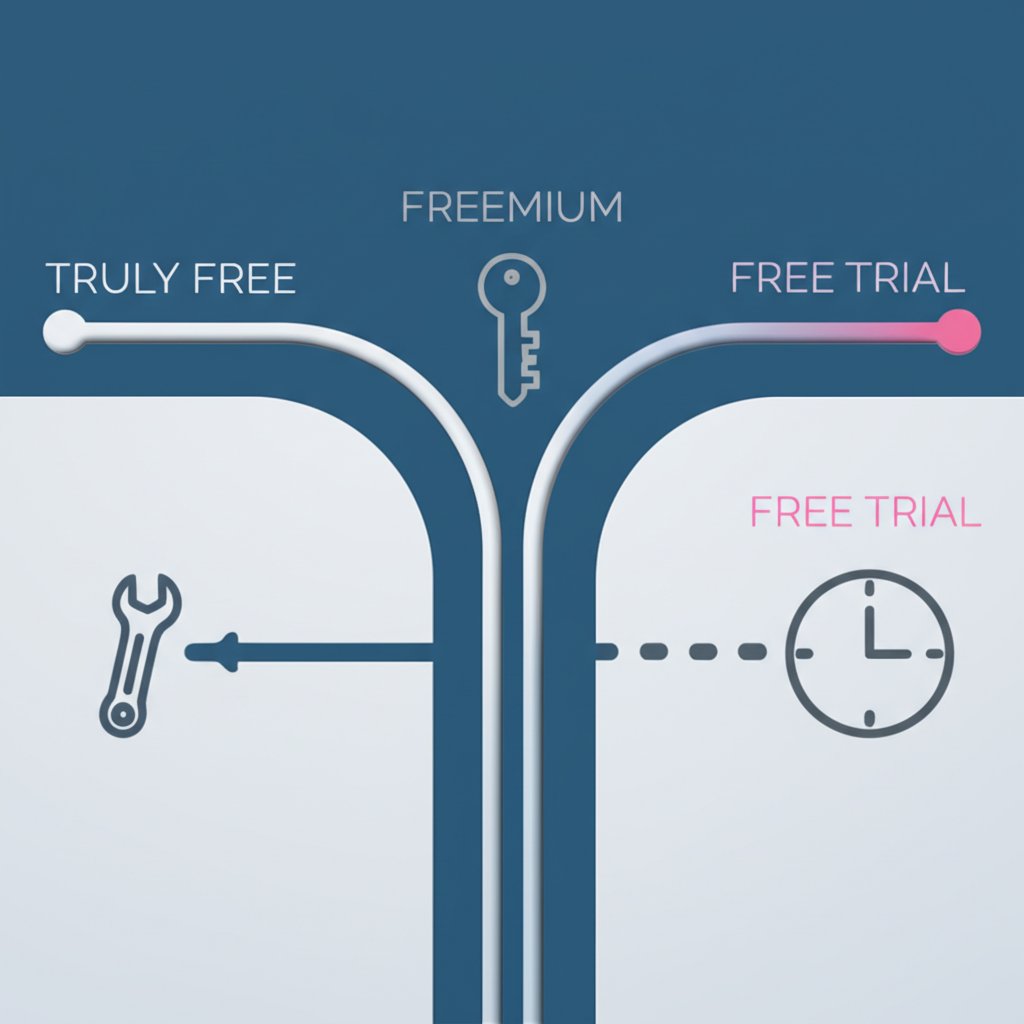TL;DR
The best free link building software includes powerful freemium platforms like Semrush and Ahrefs for comprehensive backlink analysis, alongside specialized free tools such as Hunter.io for email outreach. These solutions allow you to discover backlink opportunities, analyze competitors, and manage outreach campaigns without a significant financial investment, making them ideal for anyone starting their SEO journey.
Understanding Link Building Software: What Does 'Free' Actually Mean?
Link building software is a set of tools designed to streamline and automate the process of acquiring backlinks—links from other websites to your own. These tools are crucial for modern SEO, as they help with tasks like finding potential link opportunities, managing outreach campaigns, and analyzing competitor backlink profiles. However, when you search for free link building software, it's important to understand that 'free' can mean several different things. Navigating these options correctly will help you manage expectations and choose the right tool for your needs.
Most tools fall into one of three categories: truly free, freemium, or free trial. Truly free tools are often single-purpose utilities, like a basic broken link checker, and are genuinely free forever. Freemium models, the most common category, offer a basic tier of service at no cost with significant limitations on usage or features, encouraging users to upgrade. Industry giants like Ahrefs and Semrush use this model effectively. Finally, free trials provide full access to a premium tool for a limited time, usually 7 to 14 days, before requiring a paid subscription.
Each model serves a different purpose. A truly free tool is perfect for a specific, one-off task. A freemium plan is excellent for ongoing, low-volume needs or for familiarizing yourself with a platform's ecosystem. A free trial is best when you have a short, intensive project and need the full power of a premium tool to get it done. Understanding these distinctions is the first step toward building an effective, budget-friendly link building toolkit.
| Model | Pros | Cons |
|---|---|---|
| Truly Free | No cost, ever. Great for single, specific tasks. | Limited functionality, often lacks support, may have ads. |
| Freemium | Good for ongoing, low-volume use. A great way to learn a platform. | Strict usage limits (e.g., reports per day, results per search). Key features are often behind a paywall. |
| Free Trial | Full access to all premium features. Ideal for short, intensive projects. | Time-limited. Requires payment information upfront and auto-renews if not canceled. |

Best 'Freemium' Link Building Platforms (The Powerhouses)
For those serious about SEO, the major all-in-one platforms offer the most powerful features, even in their limited free tiers. These 'powerhouse' tools—Semrush, Ahrefs, and Moz—provide a taste of their comprehensive backlink databases and analytical capabilities. While their free offerings are designed to lead you toward a paid subscription, they provide enough value to conduct essential backlink analysis, spy on competitors, and identify high-value link opportunities. They are the perfect starting point for anyone wanting to understand the competitive landscape without immediate financial commitment.
These platforms have built their reputations on the back of massive, constantly updated link indexes. Ahrefs, for instance, is known for having one of the most active web crawlers after Google itself. This means the data you get, even from their free tools, is often fresh and extensive. Using their freemium plans allows you to perform critical tasks like identifying a competitor's top-linked pages or discovering who links to them but not to you. This information is the foundation of any strategic link building campaign. While you won't be able to run large-scale outreach or export massive datasets, you can gain actionable insights that guide your manual efforts effectively.
| Tool | Key Free Link Building Feature | Limitation | Best For |
|---|---|---|---|
| Semrush | Backlink Analytics & Link Building Tool | Limited to a small number of reports per day and prospects per project. | Getting a feel for an end-to-end link building workflow. |
| Ahrefs | Free Backlink Checker | Shows only the top 100 backlinks and referring domains. | Quickly analyzing the top-level backlink profile of any website. |
| Moz | Link Explorer | Limited number of queries per month; data per report is capped. | Evaluating Domain Authority (DA) and identifying high-spam-score links. |
Top Truly Free Tools for Specific Link Building Tasks
While freemium platforms offer a broad overview, sometimes you need a specialized tool that does one thing exceptionally well without asking for a credit card. The ecosystem of truly free link building software is vibrant, offering powerful solutions for distinct stages of the link building process. These tools are perfect for supplementing the limitations of freemium plans or for executing targeted campaigns on a shoestring budget. By combining a few of these utilities, you can build a surprisingly effective, no-cost link building stack.
From finding the correct contact person for outreach to discovering broken links across the web that you can claim, these tools empower you to take meaningful action. They prove that you don't need an enterprise-level budget to start building high-quality backlinks. Below are some of the most reputable and useful free tools, categorized by the specific task they help you accomplish.
Free Backlink Analysis
Before you can build new links, you need to know where you and your competitors stand. Free backlink checkers provide a snapshot of a domain's link profile. While Ahrefs' Free Backlink Checker is a popular choice for its high-quality data, other tools like OpenLinkProfiler offer a surprisingly deep analysis at no cost, showing active links, anchor text distribution, and more. These tools are invaluable for initial research and identifying your competitors' most successful link sources.
Free Email Prospecting & Outreach
Finding the right person to contact is often the hardest part of outreach. Hunter.io is a go-to tool in this space, offering a generous free plan that includes 25 searches and 50 verifications per month to find and confirm professional email addresses. For a different approach, HARO (Help a Reporter Out) connects you with journalists actively looking for sources. By responding to relevant queries, you can earn high-authority backlinks from news publications for free—a strategy highlighted by experts at sites like Backlinko.
Free Link Monitoring & Reclamation
Monitoring your brand and reclaiming unlinked mentions is one of the easiest ways to build links. Google Alerts is a simple but essential tool that emails you whenever your brand name or target keywords are mentioned online. When you find a mention that doesn't include a link back to your site, a polite email is often all it takes to get one added. For on-site issues, the Broken Link Checker WordPress plugin, recommended by sources like AIOSEO, automatically scans your site for broken links, helping you maintain a healthy site and find opportunities for outreach when you discover broken external links.
How to Choose the Right Free Link Building Software
Selecting the right software from a sea of options can feel overwhelming. The key is to move beyond features and focus on your specific goals, resources, and scale. A tool that's perfect for a freelance SEO might be inadequate for a small business, and vice versa. The best approach is to create a 'tool stack'—a combination of free and freemium tools that collectively meet your needs without straining your budget. Start by defining your primary link building strategy, whether it's guest posting, broken link building, or digital PR, and then select tools that directly support that workflow.
Before you can build links, you need link-worthy content. For marketers and creators looking to scale their content production efficiently, an AI-powered tool can be a game-changer. For example, some teams find that platforms like BlogSpark can help generate engaging, SEO-optimized articles, creating the assets you need to attract high-quality backlinks. This strategic foundation is critical; the best outreach tool in the world won't succeed without valuable content to promote.
To help guide your decision, consider which of the following personas best describes you and use the recommended starting points to build your custom toolkit. Also, ask yourself the key questions in the checklist below to clarify your needs.
- For a Personal Blog: Your focus is likely on guest posting and building relationships. Start with HARO for PR opportunities and Hunter.io's free plan for finding editor emails. Use Ahrefs' Free Backlink Checker for occasional competitor research.
- For a Small Business: You need a balance of competitor analysis and outreach. Begin with a Semrush or Moz freemium account to monitor a few key competitors. Combine this with Google Alerts to track brand mentions you can turn into links.
- For a Freelance SEO: Efficiency and scalability are key. You'll benefit most from a combination of tools. Use OpenLinkProfiler for deep-dive analysis and pair it with a tool like Pitchbox or Respona on a free trial for intensive, short-term outreach campaigns.
Your Pre-Selection Checklist:
- What is my primary link building goal right now (e.g., competitor analysis, guest post outreach, fixing broken links)?
- How much time can I realistically commit to using these tools each week?
- What is my budget if I decide to upgrade from a free plan in the future?
- Do I need a single, all-in-one tool, or am I comfortable using several specialized tools?

Frequently Asked Questions
1. Is link building still important for SEO?
Yes, link building remains a critical component of a successful SEO strategy. Backlinks act as votes of confidence from one site to another, signaling to search engines like Google that your content is credible and authoritative. While the quality of links is now far more important than the quantity, a strong backlink profile is highly correlated with better search rankings, especially for competitive keywords.
2. Can I build high-quality links completely for free?
Absolutely. While it requires more time and effort, it is entirely possible to build excellent links without paying for software. Strategies like responding to HARO queries, reclaiming unlinked brand mentions found via Google Alerts, and manual outreach for guest posting can all be done for free. The tools listed in this article are designed to make these processes more efficient and scalable.
3. What is the difference between internal and external link building?
External link building is the process of acquiring links from other websites to your own. This is done to build your site's authority and improve its search engine rankings. Internal link building involves linking pages within your own website. This helps search engines understand your site's structure, distributes link equity throughout your site, and improves user navigation.




